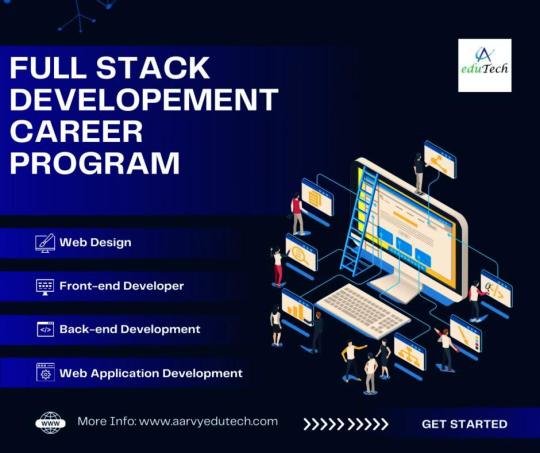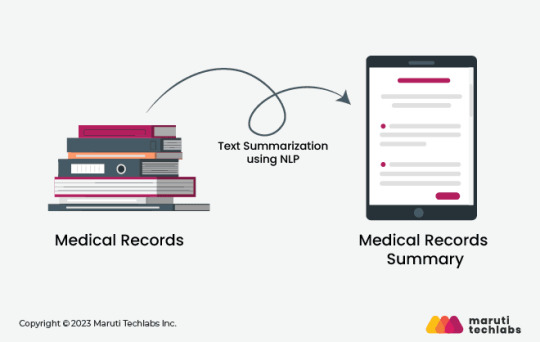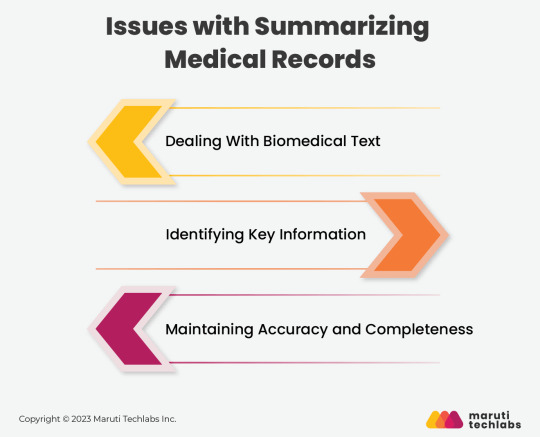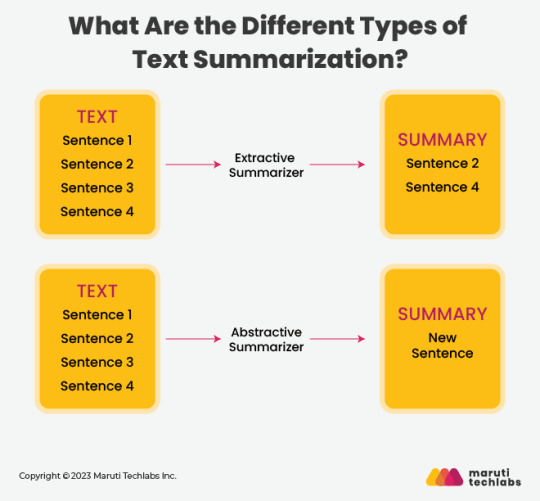#Machine Learning Healthcare
Explore tagged Tumblr posts
Text
The Impact Of Artificial Intelligence On The Medical Industry
The Impact Of Artificial Intelligence On The Medical Industry - #letsblogoff #AI, #PopularPosts, #Technology, #Tips - https://www.letsblogoff.com/the-impact-of-artificial-intelligence-on-the-medical-industry/
#AI in Healthcare#AI in Medical Research#Healthcare Challenges#Machine Learning Healthcare#Medical Revolution#Patient Engagement#Precision Medicine#Transparency and Accountability
0 notes
Text

Neturbiz Enterprises - AI Innov7ions
Our mission is to provide details about AI-powered platforms across different technologies, each of which offer unique set of features. The AI industry encompasses a broad range of technologies designed to simulate human intelligence. These include machine learning, natural language processing, robotics, computer vision, and more. Companies and research institutions are continuously advancing AI capabilities, from creating sophisticated algorithms to developing powerful hardware. The AI industry, characterized by the development and deployment of artificial intelligence technologies, has a profound impact on our daily lives, reshaping various aspects of how we live, work, and interact.
#ai technology#Technology Revolution#Machine Learning#Content Generation#Complex Algorithms#Neural Networks#Human Creativity#Original Content#Healthcare#Finance#Entertainment#Medical Image Analysis#Drug Discovery#Ethical Concerns#Data Privacy#Artificial Intelligence#GANs#AudioGeneration#Creativity#Problem Solving#ai#autonomous#deepbrain#fliki#krater#podcast#stealthgpt#riverside#restream#murf
17 notes
·
View notes
Text
every day i struggle to make choices
#i should invest into some kind of education but cant make up my mind#mostly because options suck#i cant do trades unless my body sucks less which is sad because id love to be an electrician#cant even think about getting a pilots license cuz im not passing the med cert#i think id rather die than be a med assistant actually#working clinics at all makes me nervous tbh but probably where im headed in the short term#surgical tech would be cool but i cant do a Real program while working full-time#which is what limits most of my choices#i need to find more paid training programs i guess#if i had to pick a miserable but fulfilling job id go into education itself#but the teaching profession has always been in a downward spiral esp as of late#i dont want healthcare because i hate seeing dysfunctional glorified murder machines grinding around and around endlessly#acute care sucks id rather be in an icu for function but then im depressed because our patients are always dying#it was better as a phleb but this hospital doesnt have phleb and like i said im nervous about clinics#but i need to fucking commit to outpatient phlebotomy i think :/#the most fun ive had at a job ever#i wish i had more widely applicable skills but i cant be an emt/para even just for the training#because half of it is unpaid and the other half you pay for#and again#a job NOTORIOUS for being exhausting dangerous and traumatizing#if i was 17 again and wasnt escaping the tar pit of my mother id go for an english degree and i wouldnt even regret it#thinking about school in terms of a job i have to have forever vs for the sake of learning is so different#id like to know everything. i wanna read and write forever. and do research and have real technical skills that help people#im still riding off of the high of getting 5 ccs off of an oncology patient who desperately needed a port#they were able to run like seven tests off of it#i had to use a couple ped tubes#she only had to get poked Once and barely noticed it bc the doc team came in and im so happy i made her admission that muvh easier#labs are so miserable#checking back on the blood and seeing all of the results came through made me more pleased than anything else in the world
14 notes
·
View notes
Link
As computing power has exponentially grown, machine learning (ML) techniques have gained immense popularity in healthcare – including predicting outcomes for patients with devastating illnesses like cancer. By estimating survival rates and life expectancy, statistical models help patients and doctors make difficult treatment decisions, weighing benefits against risks. Now, researchers at The University of Texas at Arlington have developed a pioneering new ML approach that significantly improves prognostic accuracy for cancer patients. Published recently, their work demonstrates how artificial intelligence (AI) continues advancing precision oncology to avoid under or over-treatment.
The Drive to Perfect Patient Survival Predictions
For patients battling cancer, determining their odds of surviving with or without intense interventions can dictate the quality of life versus longevity tradeoffs. However, traditional statistical models have faced limitations.
As lead author Dr. Suvra Pal explains, “Previous techniques don’t fully capture complex relationships between survival and factors like patient age or treatment details. They also offer limited interpretability into why certain predictions are made.”
By amalgamating sophisticated machine learning with traditional parametric cure models, his team aimed to enhance predictions that guide patients and doctors during difficult treatment decisions.
Continue Reading
#bioinformatics#medical informatics#cancer#cancer treatment#machine learning#healthcare#healthcare advancements
46 notes
·
View notes
Text
How DeepSeek AI Revolutionizes Data Analysis
1. Introduction: The Data Analysis Crisis and AI’s Role2. What Is DeepSeek AI?3. Key Features of DeepSeek AI for Data Analysis4. How DeepSeek AI Outperforms Traditional Tools5. Real-World Applications Across Industries6. Step-by-Step: Implementing DeepSeek AI in Your Workflow7. FAQs About DeepSeek AI8. Conclusion 1. Introduction: The Data Analysis Crisis and AI’s Role Businesses today generate…
#AI automation trends#AI data analysis#AI for finance#AI in healthcare#AI-driven business intelligence#big data solutions#business intelligence trends#data-driven decisions#DeepSeek AI#ethical AI#ethical AI compliance#Future of AI#generative AI tools#machine learning applications#predictive modeling 2024#real-time analytics#retail AI optimization
3 notes
·
View notes
Text
youtube
#Aperture#video essay#algorithm#algorithms#Eric Loomis#COMPAS#thought piece#computer#computer program#data#data brokers#targeted ads#data breach#terminal#the silver machine#AI#machine learning#healthcare#tech#technology#profit#Youtube
2 notes
·
View notes
Text
Why Quantum Computing Will Change the Tech Landscape
The technology industry has seen significant advancements over the past few decades, but nothing quite as transformative as quantum computing promises to be. Why Quantum Computing Will Change the Tech Landscape is not just a matter of speculation; it’s grounded in the science of how we compute and the immense potential of quantum mechanics to revolutionise various sectors. As traditional…
#AI#AI acceleration#AI development#autonomous vehicles#big data#classical computing#climate modelling#complex systems#computational power#computing power#cryptography#cybersecurity#data processing#data simulation#drug discovery#economic impact#emerging tech#energy efficiency#exponential computing#exponential growth#fast problem solving#financial services#Future Technology#government funding#hardware#Healthcare#industry applications#industry transformation#innovation#machine learning
2 notes
·
View notes
Text
youtube
#AI in Healthcare#Drug Development#Artificial Intelligence#Healthcare Innovation#Pharmaceutical Research#Ethical AI#Future of Medicine#AI Drug Discovery#Medical Research#Health Tech#Bioinformatics#Machine Learning#AI Revolution#Healthcare Ethics#AI Ethics#AI Applications in Medicine#NextGen Drugs#Precision Medicine#Computational Biology#Tech in Healthcare#AI Models in Pharma#Youtube
2 notes
·
View notes
Text
Take Care of Maya
I watched this last night and cried my eyes out. It's a documentary about the Kowalski's and their struggles not so much with Maya's CRPS affliction but more so with Johns Hopkins All Children’s Hospital for allegedly abusing Maya Kowalski, then 10, and accusing her mother of Munchausen by proxy.

#take care of maya#documentaries to watch#seriously it was heartbreaking#but we all need to watch#and learn some empathy#and healthcare shouldn't look at people as money making machines#wtf#where is your hippocratic oath
7 notes
·
View notes
Text
Sun-Kissed Style: Solar Clothing Charges Up the Future of Fashion - Daniel Reitberg
There will soon be a clearer line between fashion and usefulness. Solar-powered clothes is a big step forward in terms of both style and environmental responsibility. Now, solar cells are being woven into fabrics, which turns regular clothes into tiny power plants. Imagine that your backpack could charge your phone while you're on the go or that your hiking jacket could charge your fitness tracker while you're out on a journey.
Embedded solar cells in this new technology make energy, which could power a variety of wearable tech. Even though the current level of efficiency needs to be improved before smartphones can be charged fully, the promise is clear. Solar clothing shows us a possible future where our clothes not only look good on us but also provide us with clean energy when we're on the go.
This exciting new development has a lot of potential for people who care about the environment and people who love the outdoors. As study goes on and clothes get more efficient, solar clothing could change the way we power our wearable tech, making the future of fashion and tech more eco-friendly and convenient.
#artificial intelligence#machine learning#deep learning#technology#robotics#autonomous vehicles#robots#collaborative robots#business#healthcare#solar cells#solar energy#fashion#clothing
2 notes
·
View notes
Text

TOP 10 courses that have generally been in high demand in 2024-
Data Science and Machine Learning: Skills in data analysis, machine learning, and artificial intelligence are highly sought after in various industries.
Cybersecurity: With the increasing frequency of cyber threats, cybersecurity skills are crucial to protect sensitive information.
Cloud Computing: As businesses transition to cloud-based solutions, professionals with expertise in cloud computing, like AWS or Azure, are in high demand.
Digital Marketing: In the age of online businesses, digital marketing skills, including SEO, social media marketing, and content marketing, are highly valued.
Programming and Software Development: Proficiency in programming languages and software development skills continue to be in high demand across industries.
Healthcare and Nursing: Courses related to healthcare and nursing, especially those addressing specific needs like telemedicine, have seen increased demand.
Project Management: Project management skills are crucial in various sectors, and certifications like PMP (Project Management Professional) are highly valued.
Artificial Intelligence (AI) and Robotics: AI and robotics courses are sought after as businesses explore automation and intelligent technologies.
Blockchain Technology: With applications beyond cryptocurrencies, blockchain technology courses are gaining popularity in various sectors, including finance and supply chain.
Environmental Science and Sustainability: Courses focusing on environmental sustainability and green technologies are increasingly relevant in addressing global challenges.
Join Now
learn more -

#artificial intelligence#html#coding#machine learning#python#programming#indiedev#rpg maker#devlog#linux#digital marketing#top 10 high demand course#Data Science courses#Machine Learning training#Cybersecurity certifications#Cloud Computing courses#Digital Marketing classes#Programming languages tutorials#Software Development courses#Healthcare and Nursing programs#Project Management certification#Artificial Intelligence courses#Robotics training#Blockchain Technology classes#Environmental Science education#Sustainability courses
2 notes
·
View notes
Text
AI-Powered Medical Records Summarization: A Game-Changer
In the world of healthcare, medical records are the lifeblood of patient care. They contain crucial information about a patient's medical history, diagnosis, treatment, doctor's notes, prescriptions, and progress. These records are paramount to healthcare providers, legal firms, and insurance companies.
Doctors and caregivers need timely access to patients' medical histories and health reports to make precise diagnoses and develop effective treatment plans. Similarly, legal firms rely on these records to establish relevant facts and prepare a solid case.
However, managing extensive and complex medical records with specialized terminology takes time and effort. Professionals spend hours navigating through stacks of documents, and missing or misplacing crucial information can have serious consequences. This is where medical records summarization comes in.
Medical records summarization concisely summarizes a patient’s entire medical history. It highlights all the essential information in a structured manner that helps track medical records quickly and accurately.

Text summarization is an essential Natural Language Processing (NLP) task that involves constructing a brief and well-structured summary of a lengthy text document. This process entails identifying and emphasizing the text's key information and essential points within the text. The process is referred to as document summarization when applied to a specific document.
Document summarizations are of three major types:
Extractive: In an extractive summary, the output comprises the most relevant and important information from the source document.
Abstractive: In an abstractive summary, the output is more creative and insightful. The content is not copied from the original document.
Mixed: In a mixed approach, the summary is newly generated but may have some details intact from the original document.
The comprehensive and concise nature of medical record summaries greatly contributes to the effectiveness and efficiency of both the healthcare and legal sectors.
Issues With Summarizing Medical Records
Though summarizing medical records has several benefits, they have their challenges. Even automated summary generation for medical records is not 100% accurate.
Some of the most common issues with summarizing medical records include:

Dealing With Biomedical Text
Summarizing biomedical texts can be challenging, as clinical documents often contain specific values of high significance. Here, lexical choices, numbers, and units matter a lot. Hence, creating an abstract summary of such texts becomes a significant challenge.
Identifying Key Information
Medical records contain a large amount of information. But the summary must only include relevant information that aligns with the intended purpose. Identifying and extracting relevant information from medical records can be challenging.
Maintaining Accuracy and Completeness
The medical records summarization process must include all the key components of a case. The key features include:
Consent for treatment
Legal documents like referral letter
Discharge summary
Admission notes, clinical progress notes, and nurse progress notes
Operation notes
Investigation reports like X-ray and histopathology reports
Orders for treatment and modification forms listing daily medications ordered
Signatures of doctors and nurse administrations
Maintaining accuracy and completeness, in summary, could be a challenge considering the complexity of medical documents.
What Are The Different Types Of Text Summarization?

There are two main approaches to getting an accurate summary and analysis of medical records: extractive summarization and abstractive summarization.
Extractive Summarization
Extractive summarization involves selecting essential phrases and lines from the original document to compose the summary. However, managing extensive and complex medical records with specialized terminology takes time and effort. LexRank, Luhn, and TextRank algorithms are among the top-rated tools for extractive summarization.
Abstractive Summarization
In abstractive summarization, the summarizer paraphrases sections of the source document. In abstractive summarization, the summarizer creates an entirely new set of text that did not exist in the original text. The new text represents the most critical insights from the original document. BARD and GPT-3 are some of the top tools for abstractive summarization.
Comparison Between Extractive and Abstractive Summarization
When comparing abstractive and extractive approaches in text summarization, abstractive summaries tend to be more coherent but less informative than extractive summaries.
Abstractive summarization models often employ attention mechanisms, which can pose challenges when applied to lengthy texts.
On the other hand, extractive summary algorithms are relatively easier to develop and may not require specific datasets. In contrast, abstractive approaches typically require many specially marked-up texts.
3 notes
·
View notes
Text
i don’t know how to tell people on here that “just giving vacant houses” isn’t going to solve homelessness. like yes making housing available to currently unhoused ppl is essential but there is SO much more
#you can’t just stick someone in a house and abandon them to it ??#some people will do great & many people will struggle#who’s paying for utilities? is anyone getting assistance learning how to maintain a house#has this person ever had to maintain their own washing machine before? smoke alarms? some people have and some haven’t#what about healthcare?#transportation to jobs? grocery stores??#people deserve all of this btw the point is that only giving people a place shelter is not actually a solution#katie speaks#like yeah whatever you can say this will#all be free in the coming communist utopia#but like.
3 notes
·
View notes
Text
The Transformative Benefits of Artificial Intelligence
Title: The Transformative Benefits of Artificial Intelligence Artificial Intelligence (AI) has emerged as one of the most revolutionary technologies of the 21st century. It involves creating intelligent machines that can mimic human cognitive functions such as learning, reasoning, problem-solving, and decision-making. As AI continues to advance, its impact is felt across various industries and…

View On WordPress
#Advancements in Education#AI Advantages#AI Benefits#artificial intelligence#Customer Experience#Data Analysis#Data Analytics#Decision-Making#Efficiency and Productivity#Energy Management#Ethical AI Deployment.#Healthcare Transformation#Machine Learning#Personalized Learning#Personalized User Experiences#Robotics in Healthcare#Smart Cities#Smart Technology#Smart Traffic Management#Sustainable Development
2 notes
·
View notes
Link
A new ray of hope for non-invasive cancer detection has emerged. A machine learning algorithm called GEMINI, created by John Hopkins University and Boston University researchers, can effectively diagnose cancer patients using CT scans, even in the early stages (stages I and II), without intrusive treatments like biopsies. This model focuses on the DNA changes in malignant cells that are present not just in tumors but also in the blood’s freely moving cells-free DNA (cfDNA). GEMINI successfully demonstrated accuracy in detecting lung cancer in more than 90% of the patients in the early stages itself.
Many lives are lost to cancer primarily because of late detection, which also renders cancer treatment methods less effective. Early cancer detection certainly improves the chances of saving lives, but implementing effective screening methods is a huge hassle. A screening test called low-dose computed tomography (LDCT) is recommended for some high-risk individuals, but it comes with potential harm and low adherence rates.
Liquid biopsies offer a non-invasive approach to cancer detection by analyzing small fragments of DNA released into the bloodstream by cancer cells, called cell-free DNA (cfDNA). But, a hindrance to the efficacy of this method is the presence of minutely low proportions of cancer-specific mutations in cfDNA, which makes it difficult to distinguish those mutations from other background changes. The existing methods are confined to specific genes only, limiting successful early cancer detection.
Continue Reading
47 notes
·
View notes
Text
hear hear

(Source)
#went to a conference recently#on AI and its use in medical research#very eye opening#was going to make a post abt it actually (albeit for something slightly different lol) bc it had a message i liked for all#but the point is#please for the love of all that is good in the world#distinguish and then apply accordingly the correct term#believe it or not theres a difference between the machines that analyse and diagnose and the bots yall be flirting with :/#ai#ai in healthcare#machine learning#chatgpt
57K notes
·
View notes